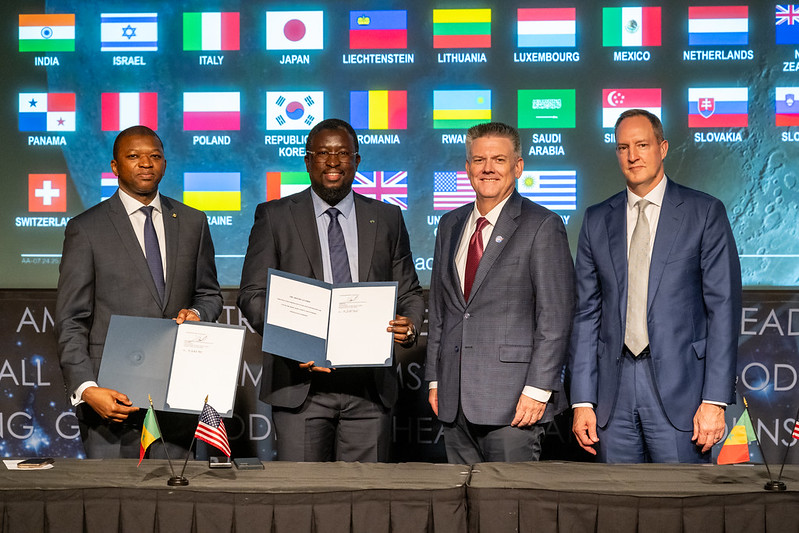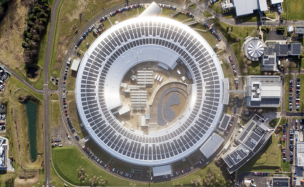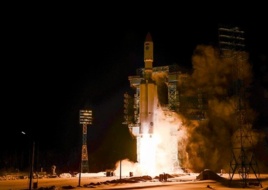Senegal became the 56th nation to join the Artemis Accords on Thursday—and just the second country to join both the US-led coalition, and a rival Chinese-led initiative to build a lunar research station.
“Senegal chooses to join the great human adventure that has always driven us to explore the unknown,” Maram Kairé, the director general of the Senegalese space agency, said at a ceremony at NASA HQ in DC. “This signature marks a meaningful step in our space diplomacy, and in our ambition to contribute to the peaceful exploration of outer space.”
A bit of history: The African nation established its space agency in March 2023, and launched its first satellite—an EO nanosat dubbed Gaindesat-1A—in August 2024. Senegal may not be a global space power, but Kairé emphasized the critical role assets in orbit have in protecting the nation’s agriculture industry.
“Space is not a luxury for us,” he said. “It is a tool of development.”
Multiple choice: The global initiative to explore the Moon has largely split into two camps:
- The Artemis Accords, established in 2020 by the US and seven other founding nations. The non-binding agreement sets best practices for responsible and transparent space exploration, and greenlights lunar resource extraction.
- The International Lunar Research Station, an initiative spearheaded by China to build a scientific station at the Moon’s south pole by 2035. The ILRS has more than a dozen members.
US officials have previously made clear that all nations are welcome in the Artemis Accords, and that they are not asking countries to choose between the two groups. Still, only two nations have made the decision to sign both frameworks.
Look back: Thailand became the first ILRS member to join the Artemis Accords in December.
Set the scene: In the absence of the interim and deputy NASA administrators, Brian Hughes, NASA’s chief of staff, led the ceremony on the US side. He was joined by Jonathan Pratt, a State Department official leading the agency’s Bureau of African Affairs.
“As we welcome Senegal, we show the world that America leads with its friends,” Hughes said. “With this signature, Senegal tells the world it is committed to upholding these principles.”




